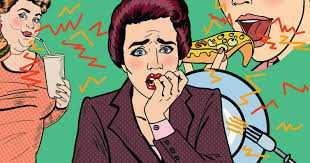Misophonia - when certain sounds drive you crazy
Curated from: theconversation.com
Ideas, facts & insights covering these topics:
4 ideas
·814 reads
2
Explore the World's Best Ideas
Join today and uncover 100+ curated journeys from 50+ topics. Unlock access to our mobile app with extensive features.
Misophonia
Misophonia is a neurophysiological condition where people have an excessively negative reaction to specific sounds, like slurping, humming, tapping, typing, or texting.
Misophonia means "hatred of sound" and people with this condition are aware of their overreaction, but can't control their reaction.
116
280 reads
The trigger sounds
The aversion to trigger sounds develops in childhood and tends to get worse over time.
The sounds are commonly related to the mouth, nasal sound, and hand sounds, and are more distressing if family members produce them.
83
164 reads
Misophonic responses
Anger is the most common misophonic response, followed by anxiety or disgust.
In misophonia, people react to sounds that are not widely considered unpleasant, such as whispering or soft breathing.
78
169 reads
Fight or flight
Misophonics are unable to ignore annoying sounds. It seems that selective attention may be impaired in these individuals. The only option when their attention becomes fixated on a trigger sound may be fight or flight.
The condition and treatment are still in its infancy, although some evidence suggests that cognitive-behavioral therapy may help.
75
201 reads
IDEAS CURATED BY
"The more you understand yourself, the more silence there is, the healthier you are." - Maxime Lagacé
Teagan P.'s ideas are part of this journey:
Learn more about health with this collection
The power of gratitude and positive thinking
Ways to improve your mood
Simple daily habits for a happier life
Related collections
Similar ideas
2 ideas
Misophonia: When sounds really do make you “crazy” - Harvard Health
health.harvard.edu
5 ideas
Hack your emotions (using breath)
bustle.com
Read & Learn
20x Faster
without
deepstash
with
deepstash
with
deepstash
Personalized microlearning
—
100+ Learning Journeys
—
Access to 200,000+ ideas
—
Access to the mobile app
—
Unlimited idea saving
—
—
Unlimited history
—
—
Unlimited listening to ideas
—
—
Downloading & offline access
—
—
Supercharge your mind with one idea per day
Enter your email and spend 1 minute every day to learn something new.
I agree to receive email updates

